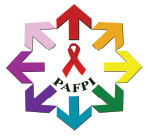“Confused, anxious, full of fear and doubts, these are the usual psychological concerns of a newly-diagnosed person living with HIV,” shares Robert Lim, Project Officer, EPIC Project. Lim shared that newly diagnosed individuals are getting basic information on HIV and AIDS during their pre-test counseling. However, it does not mean that they genuinely understand HIV and AIDS.
He shared that some clients or PLHIVs were overwhelmed with information and that learning it individually would be challenging. With this, PAFPI offered Group Learning Sessions (GLS) as psychosocial support intervention (PSI). “The topics could vary from Basic HIV, antiretroviral adherence, disclosure, and related acts or issuances on HIV and AIDS.”
Accordingly, the GLS ensures that newly-diagnosed up to six months gave a clear understanding on the basic concepts of HIV and treatment. “Knowing these information would hopefully result to behavioral change. Hindi mo alam na tong gawing ito ay nagdulot ng HIV infection. Ngayong alam mo na ay maaari mo ng protektahan ang sarili at ang katalik,” Lim explains.
More so, HIV education and information can help PLHIV understand their conditions that would allow them make informed decisions, especially with healthcare. “Proper HIV education can also help reduce stigma. Malalaman ang modes of transmitting the virus kaya hindi ka na matatakot na gumamit ng same ng utensils o maghiraman ng baso,” shares Lim.
Lastly, the GLS also helps clients bond by sharing experiences and emotions. “May mga damdamin o feelings na mahirap i-process kung mag-isa ka lang,” Lim shares and adds that the GLS along with other PSI should encourage PLHIVs adopt healthy lifestyle behaviors and over-all health.
